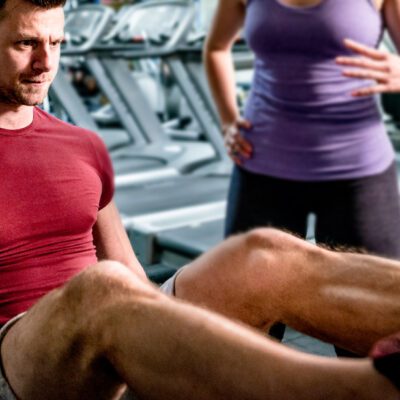Then, of course, there’s the cumulative health effects that go beyond exercise. Over time, chronic underfueling can set the stage for low energy availability (LEA), a syndrome caused by eating insufficient calories to support your activity, says Dr. Sims. This can affect your menstrual cycle—a lack or irregularity of periods in an athlete who menstruates can be a huge red flag that something’s amiss— hormones, metabolism, bone density, immunity, cardiovascular system, and mental health. And the slide into LEA, Dr. Sims says, “starts with fasted training and delayed post-exercise nutrition.”
Taking in adequate nutrition for activity helps maintain levels of the sex hormones that regulate menstruation, which helps support your bone density, sex drive, energy levels, and mental health, says Samuel. What’s more, she says, proper fueling also plays a key role in preventing injuries and burnout, which is important for allowing athletes to train consistently.
So how can you make sure you’re properly fueled even if you’re not hungry?
Your optimum fueling strategy is highly individualized, Starla Garcia, RD, a Houston-based dietitian and marathoner, tells SELF. While your body can always benefit from refueling after any workout, there are, however, three questions that can help you determine whether you need food ASAP.
1. Are you hungry? This one’s the simplest: If the answer is yes, you should definitely eat, says Garcia.
2. Is your workout duration long? If your workout lasts 60 minutes or more, no matter its intensity, make it a point to eat before, after, and possibly during your workout, Garcia says. This holds true whether you’re hungry or not. (Beginners may want to consider 45 minutes their benchmark, she says.)
3. Is your workout intensity high? If your workout contains any higher-intensity intervals, even if the total duration is less than 45 minutes, you should also consider eating before, after, and possibly during as well, says Garcia.
If you answered “yes” to any of these questions, here’s how you can put proper fueling into practice for those long, hard efforts:
What to do before a workout
If you’re working out long or hard in the morning, it’s important to have something for breakfast, says Garcia—even if you don’t wake up hungry.
Morning pre-workout fuel becomes even more vital if you slept poorly the night before, says Garcia. Cortisol, your body’s primary stress hormone, is naturally elevated right when you wake up—and it can be even higher if you’re sleep-deprived. As part of the “fight or flight” response, cortisol triggers the release of glucose into your bloodstream (so you’ll be ready to “fight”), which means you’re going into your workout with elevated blood sugar. Once you start exercising, “your blood sugar is going to drop immediately,” which can result in issues like decreased energy, brain fog, and irritability, says Garcia. All of this is a perfectly natural physiological response to exercise and your circadian rhythm, but the effects become amplified if you’re adding in intense exercise on top of them.
But eating before your workout, particularly something carb-y with a little protein in it, helps keep your blood sugar stable for longer, which can translate to more even, sustained energy and better performance, Garcia explains. Even a small pre-workout breakfast can be a game-changer, she says.





